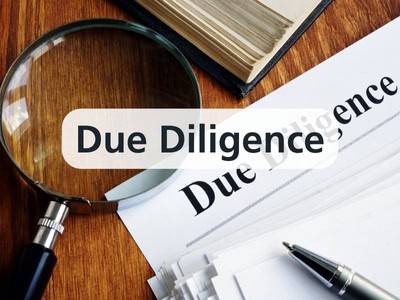Understanding Due Diligence
 Due diligence, a crucial part of business decisions, involves a thorough examination of a company’s strengths, weaknesses, financial history, and assets. It is vital for making informed choices in investments, acquisitions, and market evaluations.
Due diligence, a crucial part of business decisions, involves a thorough examination of a company’s strengths, weaknesses, financial history, and assets. It is vital for making informed choices in investments, acquisitions, and market evaluations.
The process is significant for validating information, revealing crucial facts, identifying risks, and ensuring compliance with legal guidelines. Due diligence is a time-consuming activity, taking from one to two months due to its multifaceted investigation.
When examining strategic visions, one gains insights into a company’s market position and future plans. Financial aspects involve scrutinising audit reports, financial statements, debts, credits, and projections. Assessing human resources includes examining employee details, contracts, and salary structures. Evaluating physical and perceived assets involves looking at land, buildings, goodwill, and brand value.
Scrutinizing tax history encompasses tax returns, unpaid taxes, IRS dealings, and potential benefits. Legal due diligence focuses on registration, AGM records, loan agreements, and legal disputes. Safeguarding intellectual property involves verifying patents, copyrights, trademarks, permits, and licenses.
The scope can extend to environmental policies, IT systems, marketing approaches, and R&D projects based on business complexity.


